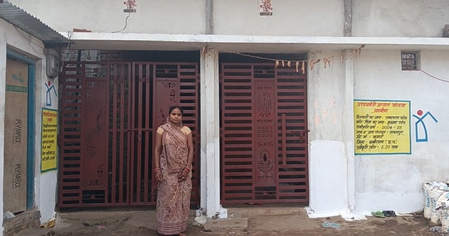

New Delhi, Sep 17 (IANS) Women residents of Samanpur village in Kabirdham district are expressing heartfelt gratitude to Prime Minister Narendra Modi for fulfilling their long-cherished dream of owning a safe and permanent home under the Pradhan Mantri Awas Yojana–Gramin (PMAY-G).
The scheme, launched by the Government of India under the Ministry of Rural Development, aims to provide brick and mortar houses with basic amenities to rural people living in ‘kutcha (temporary)’ homes or without shelter.
In Kabirdham, it has turned into a life-changing initiative, especially for women, who once faced harsh living conditions.
“I used to live in a hut with a thatched roof,” shared Gangotri, a woman beneficiary from Samanpur. “During the rains, water would leak through the roof, and our home would get flooded. We couldn’t sleep at night. But now, thanks to Modi ji, I have a solid home of my own. I am very happy and thank him with all my heart,” she said with tears of joy.
Another beneficiary, Chandrakumari Patel, echoed similar sentiments. “About ten years ago, we lived in a slum-like hut. Life was extremely difficult, especially during the monsoons. But because Prime Minister Narendra Modi thought about poor labourers like us, we now have proper homes. I feel proud and safe in my own house,” she said.
Both women extended their warm birthday wishes to Prime Minister Modi, who turned 75 today, thanking him for prioritising the welfare of the rural poor.
The PMAY-G scheme provides financial assistance to eligible rural families to build pucca homes with facilities like water supply, sanitation, and electricity. It is part of the government’s broader mission to achieve ‘Housing for All’ and uplift the standard of living in rural India.
In Kabirdham district alone, the scheme has significantly reduced rural homelessness and improved the dignity and security of countless families.
For women like Gangotri and Chandrakumari, a permanent roof over their heads is not just a structure of bricks and cement, it’s a symbol of hope, dignity, and inclusion in India’s development journey.
–IANS
rs/rad
